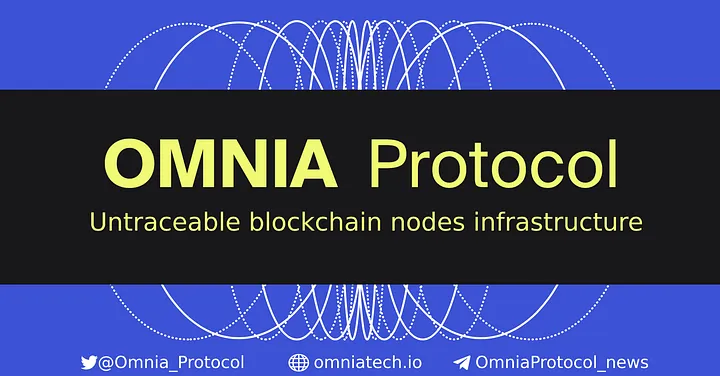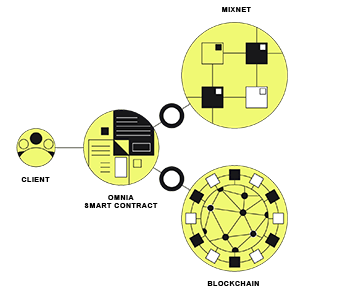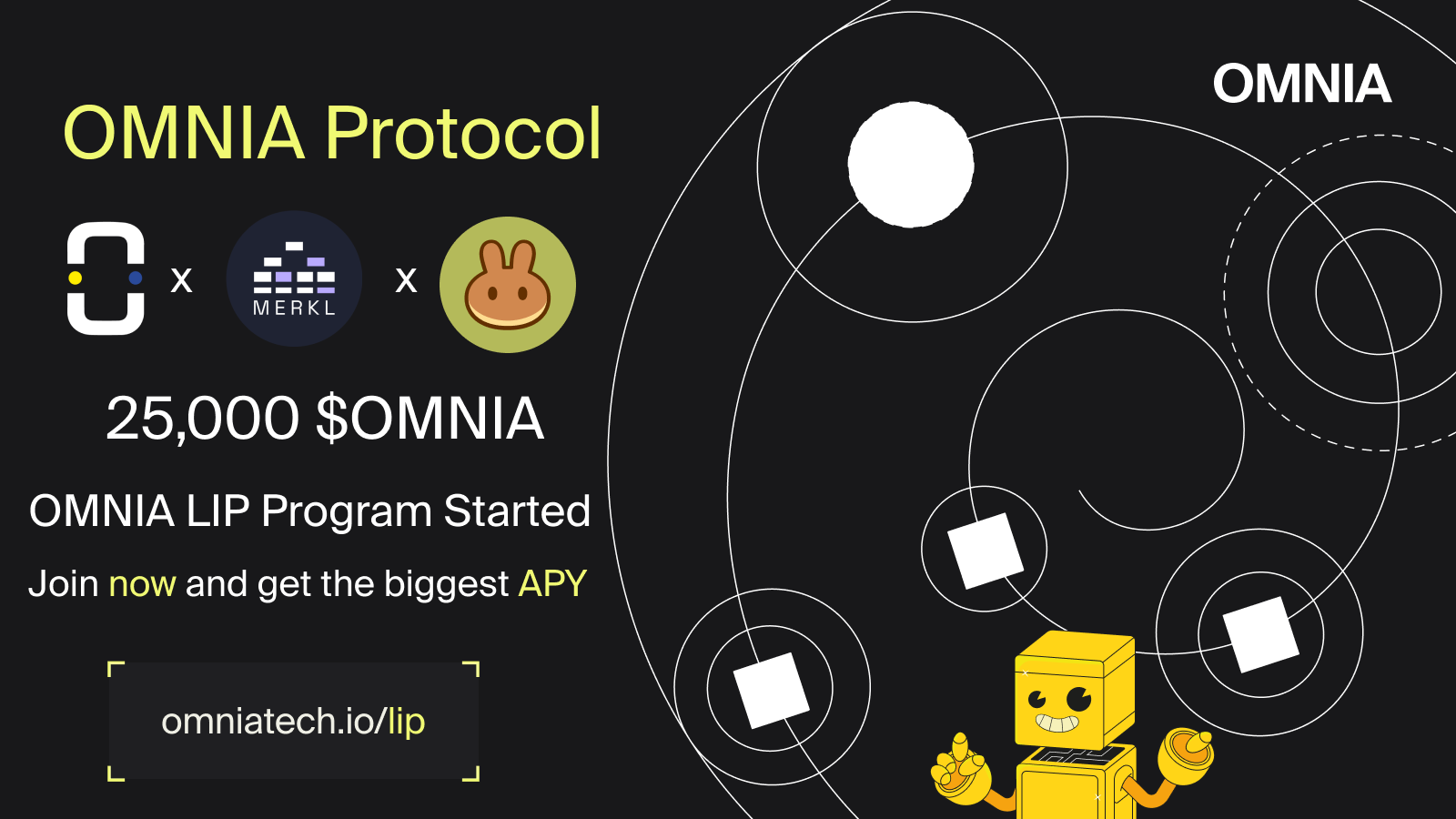
OMNIA Protocol
Privacy-first access to blockchains
Nowadays, access to blockchain infrastructure is concentrated in the hands of a few corporations. For example, almost 90% of decentralized applications and critical systems running over Ethereum are connected to the same node provider, leaving them at a high risk of becoming unavailable. It happened in November 2020, when a bug within the node software caused an Ethereum outage, where major exchanges and wallet providers halted their operations since they were all dependent of the same provider.
In a more blockchain-agnostic view, the corporations that currently act as node providers may exploit the metadata generated by the users who access the blockchain. The reasons are obvious — to gain financial advantages, either by directly selling the data or by using it to take decisions that ultimately lead to greedy profits.
What is Omnia ?
Omnia is a decentralized infrastructure protocol for securely accessing the blockchain in a decentralized way, thus eliminating single points of failure and privacy concerns.
At the same time, it allows anyone to earn rewards by hosting and maintaining a node on a specific blockchain.
Pushing the envelope
So far, on-chain privacy has been widely addressed with solutions ranging from Zero Knowledge Proofs to Ring Signatures — satisfying the need of anonymous trading and assets transactions. One missed spot and all the anonymity perishes, for example leaking the IP address when sending the transaction to a centralized node provider.
We consider that Privacy it’s a given and should be enabled by default within any blockchain technology.
Omnia gives you untraceable access to the blockchain.
In most of the blockchain ecosystems, non-mining node owners have no incentive to share their resources for general purposes (e.g. reading and sharing on-chain data), thus “leaving rewards on the table” by not optimizing their infrastructure use. Nonetheless, mining nodes can also earn extra revenue, beyond block rewards.
We think that every node should be a part of the Omnia infrastructure and rewarded accordingly for services they provide.
Omnia transforms your nodes into revenue streams.
How does it work ?
Node owners can register their nodes through a simple-to-use web interface provided by Omnia. These nodes are indexed by relayers who leverage mixnets to protect privacy.
Mixnets are not a novel approach when it comes to building an anonymous networks. For example, Tor is leveraging a low-latency mix network to provide a 3-hop circuit that is designed to better protect privacy than a single-node VPN solution. However, this approach has one major fallback — does not obfuscate traffic patterns, which eventually leads to revealing the user’s identity.
One of the objectives we have at Omnia is to augment mixnets with state of the art methods for timing obfuscation and decoy traffic injection to guarantee the utmost privacy.
The end users of Omnia can customize their own subscription, depending on the blockchain request rates they need. As a result, users receive access to secure RPC endpoints for any of the blockchain networks that we support. The RPC endpoints are handled by Omnia relayers which act as dAPI gateways.
Beyond privacy
Privacy is like hygiene — necessary but not sufficient. That’s why it’s important to also ensure that nodes deliver the performance they signed-up for and don’t act malicious.
Omnia protocol sends random requests to nodes to check their performance, and if degraded as compared to what they initially committed to, they will have their reward reduced, proportional with the performance decrease. Thus, nodes are motivated to operate at the best of their ability in order to earn the highest rewards. There is, however, a minimum performance threshold that needs to be met.
Omnia also makes sure that every node behaves as intended by running a constant verification protocol to check if the data returned by the nodes reflect the reality agreed by consensus.
Node providers will stake OMNIA tokens in order to join the network. This stake will be slashed if nodes are misbehaving beyond agreed rules/metrics.



